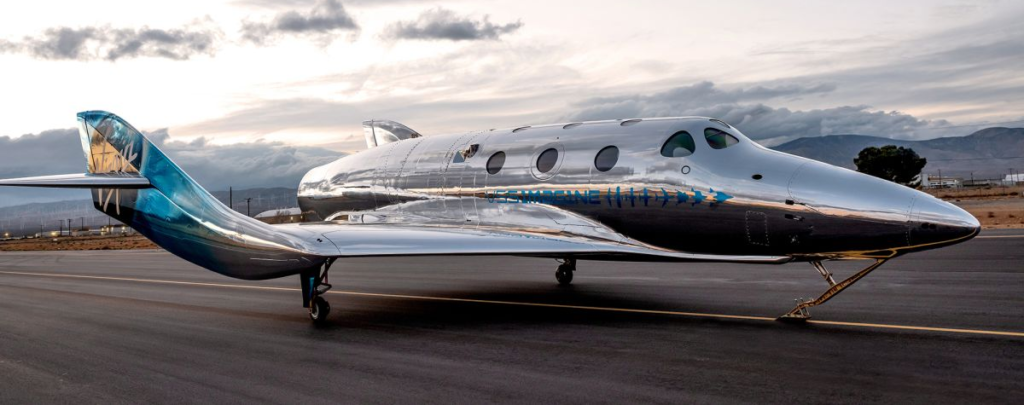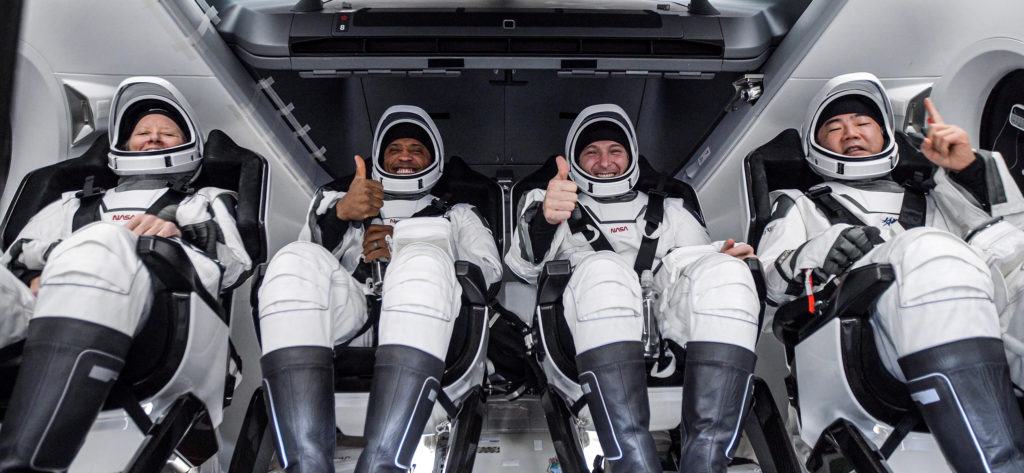Exploring the universe is a dream for many, but unless you’re training to become an astronaut, it’s highly unlikely you’ll be able to experience viewing our planet from outer space. That is, unless you happen to be a billionaire. Recently, two of the world’s most famous CEOs were able to accomplish this dream. Is this the beginning of space tourism or will space travel always be out of reach for the common man?
History and Future of Space Tourism
In 2001, Dennis Tito became the world’s first space tourist when he launched aboard a Russian spacecraft to the international Space Station, spending about 8 days in space, which reportedly cost Tito around $20 million. Since this historic flight, only a few other civilians have made the journey to space, but there are a few companies currently hoping to expand space tourism to allow more people to experience zero gravity — for a price.
Virgin Galactic

On July 11, 2021, founder Richard Branson launched into suborbital space along with three other employees, Beth Moses, Colin Bennett, Sirisha Bandla, and two pilots, Dave Mackay and Michael Masucci. The test flight aboard Virgin’s VSS Unity spacecraft was unique in that it first took off attached to a mothership, called WhiteKnightTwo, from a runway near Virgin Galactic’s spaceport in New Mexico. Once it reached 50,000 feet, the spacecraft dropped from the mothership and fired up its rocket engine to fly to the edge of space.
The flight took the crew over 50 miles above Earth and allowed them to experience the weightlessness of space and out-of-this-world views for around eight minutes before the SpaceShipTwo glided back to Earth for a runway landing. The total trip was about 90 minutes. After the flight, Branson stated, “We’re here to make space more accessible to all, and we’re going to turn the next generation of dreamers to the next generation of astronauts.”
Started in 2004, Virgin Galactic has sold over 600 tickets for future space flights at a price tag between $200,000 - $250,000. And just last week, Virgin reopened ticket sales, which now start from $450,000 for a single seat. Virgin hopes to provide regular space tourism flights in 2022, but you’ll need to shell out nearly a half million dollars to join the waiting list.
For the 99 percent of the world who don't have that sort of disposable income, you can enter a sweepstakes through Omaze to win a trip for two to space. No donation or payment is necessary to enter, but certain donation thresholds will give you more entries. You must enter by August 31, 2021, and the winner will be announced around September 20, 2021.
Related: American Airlines 777-300ER Business Class Review
Blue Origin
On July 20, 2021, Blue Origin launched its New Shepard rocket into space from a remote town in West Texas. Onboard was the company’s founder, Jeff Bezos, who was able to fund the spaceflight company by selling shares of stock in his other venture, Amazon. Three others joined Bezos on Blue Origin’s first human flight, including his brother Mark and both the oldest and youngest people to ever fly in space, Wally Funk and Oliver Daemen, respectively.
Blue Origin’s rocket launched more like a traditional rocket, vertically from a launch pad, which shot the New Shepard capsule more than 60 miles high before parachutes were deployed to allow it to float back down to a landing in the desert. In total, the flight lasted just over 10 minutes and the reusable booster also landed back on earth, which is the piece responsible for launching the passengers into space.
For this flight, Blue Origin had an auction for one of the seats and the winning bid was an astonishing $28 million. The company said it would distribute $19 million of it to 19 different space-related organizations. Blue Origin has not publicly stated how much it costs for subsequent flights to space, but the company says there is strong demand. And since supply is inherently low, I would guess that the price may be even higher than what Virgin Galactic is charging. Regardless, it is surely in the hundreds of thousands of dollars range.
Blue Origin plans to fly two more human-crewed flights this year and hopes to provide more frequent flights in 2022.
Space X

Elon Musk’s SpaceX has a more ambitious goal for space travel — to land humans on Mars by 2026. As late as April 2021, Musk has said that he remains “highly confident” that this is an achievable goal. The company is developing its Starship spacecraft for this mission to Mars and had its first successful flight with an earth landing on May 5, 2021.
While SpaceX has flown a few human-crewed space flights to the International Space Station as part of NASA’s Commercial Crew program, it has mostly focused on launching satellites and sending cargo to the ISS. However, there are also more immediate plans for human spaceflight. The multi day “Inspiration4” mission plans to launch sometime after mid-September 2021 using SpaceX’s Dragon Spacecraft. The mission has been dubbed “the world’s first all civilian space flight” and is funded by billionaire entrepreneur Jared Isaacman who will be part of the crew.
In addition, SpaceX is partnering with Axiom Space to send people to the International Space Station. The first mission is set to launch “no earlier than January 2022.” The price tag for this flight and stay at the ISS is a whopping $55 million per person. If you’d like to try to win your way on to the second mission, you can apply to be on Discovery Channel’s reality-TV show, Who Wants to Be an Astronaut? for a chance at a ticket to space.
Other Types of Space Tourism
Other than the top 3 space travel companies headed by popular billionaire CEOs, there are a few other companies with dreams of bringing tourists to space. Space Adventures has sent private citizens to the ISS in the past, including the first space tourist, Dennis Tito, using the Russian Soyuz rocket. It hopes to provide the first private citizen a chance to complete a spacewalk.
Space Perspective hopes to fly passengers to space with a hot-air-balloon-like, pressurized capsule that will “gently lift passengers 100,000 ft to space” for a view of Planet Earth. It is currently selling seats starting at $125,000 with a refundable deposit as low as $1,000. Space Perspective plans to start flying in 2024, though its website states that 2024 flights are sold out and any bookings will be for 2025 and beyond.
Orbital Assembly calls itself “The world’s first large scale space construction company” and has plans to open a luxury space hotel in 2027. Named Voyager Station, the hotel will feature over 125,000 square feet of habitable space. The prototypes look like something from Star Wars but you’ll need to be at least a millionaire to stay here judging by the fact that the lowest option for annual household income on the profile questionnaire is $0 to 10 million.
Are Airlines Looking into Space Travel?
At the moment, there are no airlines planning to launch into space. The closest would be Virgin Atlantic since it is also under the same Virgin Group conglomerate as Virgin Galactic. United has plans to fly passengers in supersonic jets by 2029, but that falls short of space travel. I’d imagine that airlines wouldn’t branch off into space travel until it can be feasible for transporting passengers from A to B, which is something Virgin Galactic has its eye on in the future.
When Will Space Travel Be Affordable?
As you can tell by the astronomical prices these companies are charging for space travel, it’s not something that will be affordable for the vast majority of humanity. And I wouldn’t count on the prices coming down to anything reasonable in our lifetime. Simple economics will tell you that unless spacecraft advance to accommodate more passengers, prices will remain sky high for a flight to space. Of course, air travel started in a similar fashion and just over 100 years later we’re flying jumbo jets around the world.
Technological advancements will continue and I’m excited to see where space exploration goes once higher capacity spacecraft are created. For now, space tourism will largely be attainable only by the ultra-rich, but we can hope that maybe a few (or several) generations down the line will be able to experience a more affordable way to travel through space.






